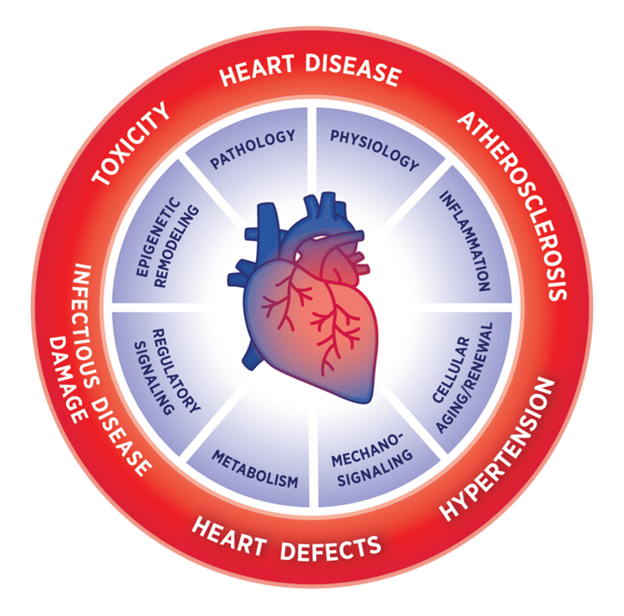
Cardiovascular disease is an umbrella term that includes heart, stroke and blood vessel diseases. It is one of Australia’s largest health issues, killing someone every 12 minutes and affecting nearly 4 million Australians.
Some people are at a greater risk of developing CVD than others, and the chance of getting it increases with age. This is because the body’s natural processes slow down as we get older, making it more likely that something will go wrong with the heart or arteries.
There are many things that can increase your risk of developing CVD, including:
- Smoking can cause narrowing and blocking of the arteries, increasing your risk of heart attack or stroke. Eating a diet high in saturated fat, trans fat, salt and LDL cholesterol can also increase your risk of developing CVD. Aim to eat a healthy diet, with plenty of fruit, vegetables and wholegrains, and try to keep your weight in a healthy range.
- A clot (thrombosis) in the arteries can block the flow of oxygen-rich blood to part of the heart, leading to chest pain or a heart attack. When a blood clot blocks the artery that supplies blood to the brain, it can cause a stroke.
Often there is no obvious cause for these conditions, although some factors can increase your chances of having them. These include:
- Genetics: If a close family member has suffered from CVD, you may be more predisposed to developing it.
- Lifestyle: Exercise and eating a healthy diet can help prevent CVD, as can not smoking. Other things you can do to decrease your risk include having regular heart health checks, avoiding alcohol, and losing excess weight.
In Australia, the main causes of CVD are coronary heart disease, vascular dementia and ischemic stroke. Coronary heart disease is a condition where a waxy substance called plaque builds up in the arteries that supply blood to your heart. This reduces the amount of oxygen reaching your heart, which can lead to symptoms like angina or a heart attack.
Vessel diseases are problems with the blood vessels that supply blood to your body, and can include atherosclerosis, a condition where the arteries develop hard and narrow, and varicose veins. These can lead to serious complications such as deep vein thrombosis, an aortic dissection and an aortic regurgitation.
In Australia, the most common type of vascular dementia is Alzheimer’s disease, which affects the parts of your brain responsible for thinking and memory. It is a degenerative condition, meaning that it gets worse over time. Vascular dementia also includes other conditions such as Parkinson’s disease and vascular dementia with Lewy bodies. Symptoms of this type of dementia include confusion, memory loss and changes in your personality. Other types of vascular dementia can be caused by tumours, stroke and a lack of blood flow to the brain.





Phenix Health delivers online health services 24/7 provided by Australian doctors and healthcare professionals.